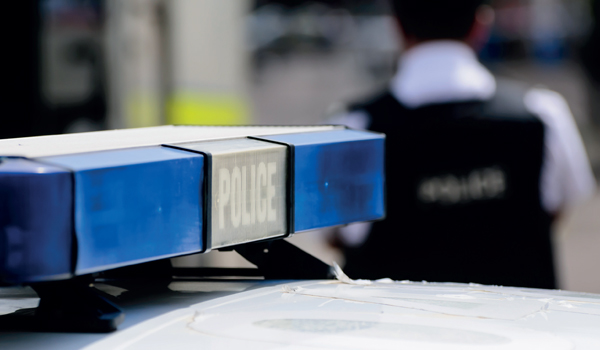Police did not have time to prevent firing of shots at INLA commemoration, Police Ombudsman finds
A Police Ombudsman investigation has found that although police planned appropriately for an INLA commemoration in Derry/Londonderry, by the time it became apparent that firearms were likely to be used it was too late to mount an operation to intervene.
Footage posted online showed two masked men firing shots into the air from what appeared to be automatic firearms during an event on August 20, 2021, to mark the anniversary of the death of INLA hunger striker Michael Devine.
There was significant criticism of the policing operation, including from Unionist politicians who queried why police had failed to intervene.
The Police Ombudsman, Marie Anderson, subsequently commenced an investigation to consider the appropriateness of the Police Service of Northern Ireland’s (PSNI) planning and response to the incident.
Speaking after the conclusion of the investigation, the Office’s Chief Executive, Hugh Hume, said it was clear that police had used all information available to them while planning for the event.
“Unfortunately, that information was somewhat limited, and it was unclear exactly what would happen, what format it would take, and whether firearms would feature,” he said.
“By the time it became apparent that firearms were likely to be used, police did not have enough time to task appropriately trained officers to intervene.
“Nevertheless, it is clear that police had begun considering a range of different options weeks in advance, and policing plans were reviewed and updated as additional information was received.”
During this time police undertook a community impact assessment and analysed available intelligence.
Once shots had been fired at the event, the PSNI commander at the scene determined that any attempt to send additional officers into an area where a commemoration was taking place and where possible gunshots had been fired was likely to put officers at risk and create a threat to the lives of members of the public.
Instead, he ordered additional steps to assist in gathering evidence about the event. A search of the scene was also later carried out, but no bullet casings were recovered.
Although the Police Ombudsman’s investigation found no evidence of police misconduct, it did result in a number of policy recommendations being made to the PSNI.
These included that the PSNI should develop specific guidance to assist officers in planning for and responding to such events. The PSNI responded that although it did not have specific guidance it did have policies aligned to the Authorised Policing Practice (APP), which acts as an official source of professional practice for policing across the UK.
It also stated that measures were in place to ensure that learning, good practice and feedback was shared among officers involved in coordinating such operations.
Reacting to the PSNI response, Mr Hume stated: “Whilst the value of the national APP is accepted the Ombudsman believes there should be clear local strategic objectives and guidance for such events, to assist police commanders in their response to both pre-planned and spontaneous incidents.”
The PSNI also responded to a recommendation that minutes should be produced of all operational planning meeting for such events, stating that although minutes had not been produced for one such meeting, it was service policy to do so. It issued a reminder to relevant officers.
A third recommendation relating to media training for officers conducting interviews was accepted by the PSNI.
PSNI Deputy Chief Constable Bobby Singleton said: “The PSNI acknowledges the findings of the Police Ombudsman and has accepted its recommendations.
“It’s worth highlighting that operations of this type are amongst the most complex and dynamic we have to contend with. They often place our commanders in circumstances where they have to make significant decisions on the safety of the public and our officers with much less information than they would like.
“The Ombudsman’s recommendations are useful organisational learning points which we have already incorporated into the planning and operational response to such events helping us prevent any recurrence.
“We remain committed to learning, listening and continuously improving our organisational response and in that spirit will further reflect upon the findings of the Ombudsman’s full investigation to identify if there are any other opportunities to share feedback and good practice.”


